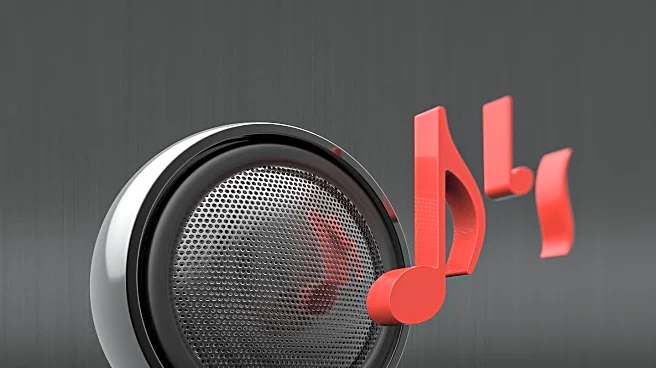What is the story about?
What's Happening?
A recent study conducted by researchers at Southwest University in China has investigated the potential of music as a non-invasive remedy for motion sickness. The study, published in the journal Frontiers in Human Neuroscience, involved inducing carsickness in participants using a driving simulator and then playing different types of music to assess recovery. The findings suggest that soft and joyful music significantly aids in reducing symptoms of motion sickness, with joyful music reducing carsickness by 57.3% and soft music by 56.7%. In contrast, sad music was found to be less effective, reducing symptoms by only 40%. The study highlights music as a low-cost intervention that could potentially alleviate motion sickness without the side effects associated with pharmacological treatments.
Why It's Important?
The exploration of music as a remedy for motion sickness is significant as it offers a non-pharmacological alternative to traditional treatments, which often come with side effects like drowsiness. This research could benefit individuals who experience motion sickness during travel, enhancing their comfort and travel experience. The study's implications extend beyond carsickness, potentially offering relief for motion sickness experienced during air or sea travel. By providing a distraction and triggering brain reward systems, music could serve as a practical solution for many travelers, reducing reliance on medication and improving overall well-being.
What's Next?
The research team plans to further investigate the effects of music on different types of motion sickness and explore the influence of individual music preferences. Future studies with larger sample sizes are needed to confirm the findings and better understand the brain activity patterns associated with motion sickness. The researchers aim to expand their study to real-life conditions, which could lead to more comprehensive insights into the efficacy of music as a remedy for motion sickness.
Beyond the Headlines
The study opens up discussions on the broader applications of music therapy in healthcare, particularly in non-invasive treatments for various conditions. It also raises questions about the role of music in influencing brain activity and emotional states, potentially leading to new therapeutic approaches in mental health and stress management.

















